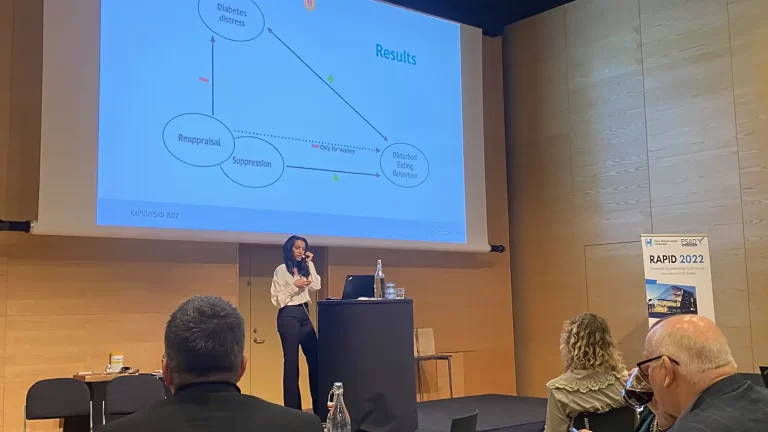COVID-19 is proving to be an extreme and unparalleled time for healthcare services across the globe; CDEs are not exempt from this rapidly changing landscape and multiple shifts are occurring in the way we now provide care. Changes to funding models are being welcomed by CDEs with open arms.
Telehealth is by no means a new concept for patients living with diabetes in Australia, and CDEs have been advocating to endorse Telehealth to be an equitable means of service delivery, for quite some time. Telehealth is often an integral component of care for a person’s diabetes management, however never before have patients been able to claim Medicare rebates on these services, until now…
Easier Access, More Convenience
Prior to the COVID-19 funding, Telehealth already enabled many Australian’s living diabetes, especially in rural and remote areas, to have access to up-to-date, specialist education and diabetes technology provided by CDEs. Diabetes is a chronic condition that necessitates a person living diabetes to attend frequent appointments to a range of healthcare professionals across the multidisciplinary team, including: General Practitioner (GP), CDE, Endocrinologist, Dietician, Podiatrist, Psychologist, Optometrist, along with other specialist clinicians. Juggling life, and diabetes and attending these appointments can prove difficult at the best of times.
Telehealth consults eradicate time spent on the sometimes long journeys travelling to a CDE appointment, time taken off work (especially if Telehealth consults are provided outside of business hours), along with the difficulty of finding someone to mind the kids and the common struggle of parking. Whilst face to face consults are still imperative, especially for new diagnosis and starting on insulin pump therapy, Telehealth services have anecdotally proven to have high attendance rates and result in patients feeling well supported, leading to greater health outcomes, both short and long term.
Rebatable Telehealth Appointments
As we see ourselves voyaging through the uncharted waters of this pandemic, abiding by Australian Government guidelines in line with social distancing and essential interactions only, it is a relief that patients will be able to have critical access to CDEs via now Medicare rebatable Telehealth appointments. Whilst we are navigating the finer details (see link for legislation), it looks like this will be equivalent to current face to face Medicare rebates, equating to $53.80 per consult for patients who have a shared care plan, or a GP Management Plan and Team Care Arrangements, or if they are a resident of an RACF and have a multidisciplinary care plan.
CDEs are the front line when it comes to providing education to patients with diabetes to safely and effectively manage their blood glucose levels (BGLs), optimise their health and wellbeing, but also assisting people with diabetes to safely navigate their BGLs +/- Ketones during sick days. Now more than ever, as our acute healthcare services become overwhelmed, it is vital that we support people living with diabetes to stay safe and well, avoiding preventable Emergency Department presentations and hospital admissions. We also need to come together to support tertiary diabetes services, as they redirect medical and nursing staff to emergency and acute inpatient areas to meet the demand of COVID-19 patients.

Telehealth: A Service Innovation
Living with Type 1 Diabetes myself, I strongly stand by the notion that patients find this innovative means of service delivery extremely beneficial. It focuses on the needs of an individual and discovers a way to make diabetes management fit into people’s lives with greater ease. With today’s technology, Telehealth platforms are incredibly easy to use and patients are able to attend their Telehealth appointment using their smart mobile phone.
Given the current climate, Telehealth is quickly becoming the standard or the ‘norm’ for a lot of outpatient services. As I have already mentioned, face to face consultations with CDEs will always be essential, nevertheless, Telehealth appointments certainly have a broad and practical range of opportunities for use. During this time, Telehealth consults are not merely an option, but in fact the only option to stay engaged with their regular CDE appointments and receive the imperative support and guidance they require.
This is a milestone worth celebrating and as we are being forced to reflect upon what is really necessary in our individual lives, for those living with diabetes, CDEs certainly fit the bill and the Australian Government thinks so too. CDEs have a significant impact on people living with diabetes; as a patient and a clinician, I have experienced this from both sides.
I would like to thank Diabetes Australia, the Juvenile Diabetes Research Foundation (JDRF), the Australia Diabetes Educators Association (ADEA), Diabetes QLD and NSW ACT, and most importantly our diabetes community whom are themselves, their loved ones or family members, living with diabetes. I am incredibly passionate about Telehealth, and with this funding set to kick in on 30 March 2020, my next question will be whether the cease date on 30 September 2020 will be negotiable, as inevitably people with diabetes adapt to a new way of seeing their CDE.
Stay home and stay safe. #CDE #Diabetes #Telehealth
Rachael Baker
Credentialled Diabetes Educator (CDE, BN)
Clinical Nurse Specialist
Macintyre Health
@rachaelb_t1d_macintyrehealth



